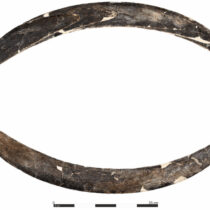According to the commonly accepted theory — also repeated by Eva Cantarella in her article in this issue of APXAIOΛOΓIA — women in classical Athens played a secondary role since their only social challenge was to function as simple children-producing machines. This view is an exaggeration. Only luxurious mansions had quarters strictly for women, an element alien to the numerous dwellings located at the foothill of Acropolis. Athenian daughters were endowed in advance with a share from the future paternal legacy as opposed to the sons who received their share after their father’s death. The obligation of the husband to return the dowry in case of divorce made Athenian men adopt a more flexible and tolerant attitude towards their wives’ shortcomings and mistakes. Furthermore, one must take into consideration that women in Athens had the right to owe any kind of property and estate and to make business and transactions. Thus, women, who lend or borrow, who keep taverns or discuss with their husbands and make comments on the issues brought to the ecclesia or court, are mentioned in fifth and fourth century texts. It is true that a woman’s life in classical Athens was not ideal. However, since there are two sides to every coin we must also try to study and elucidate the other side, which seems to be engraved with more optimistic messages as regards the position of women in Athenian society.
Athenian women of the fifth and fourth century BC
03 Aug 2012
by Archaeology Newsroom
- A
- A
- A


